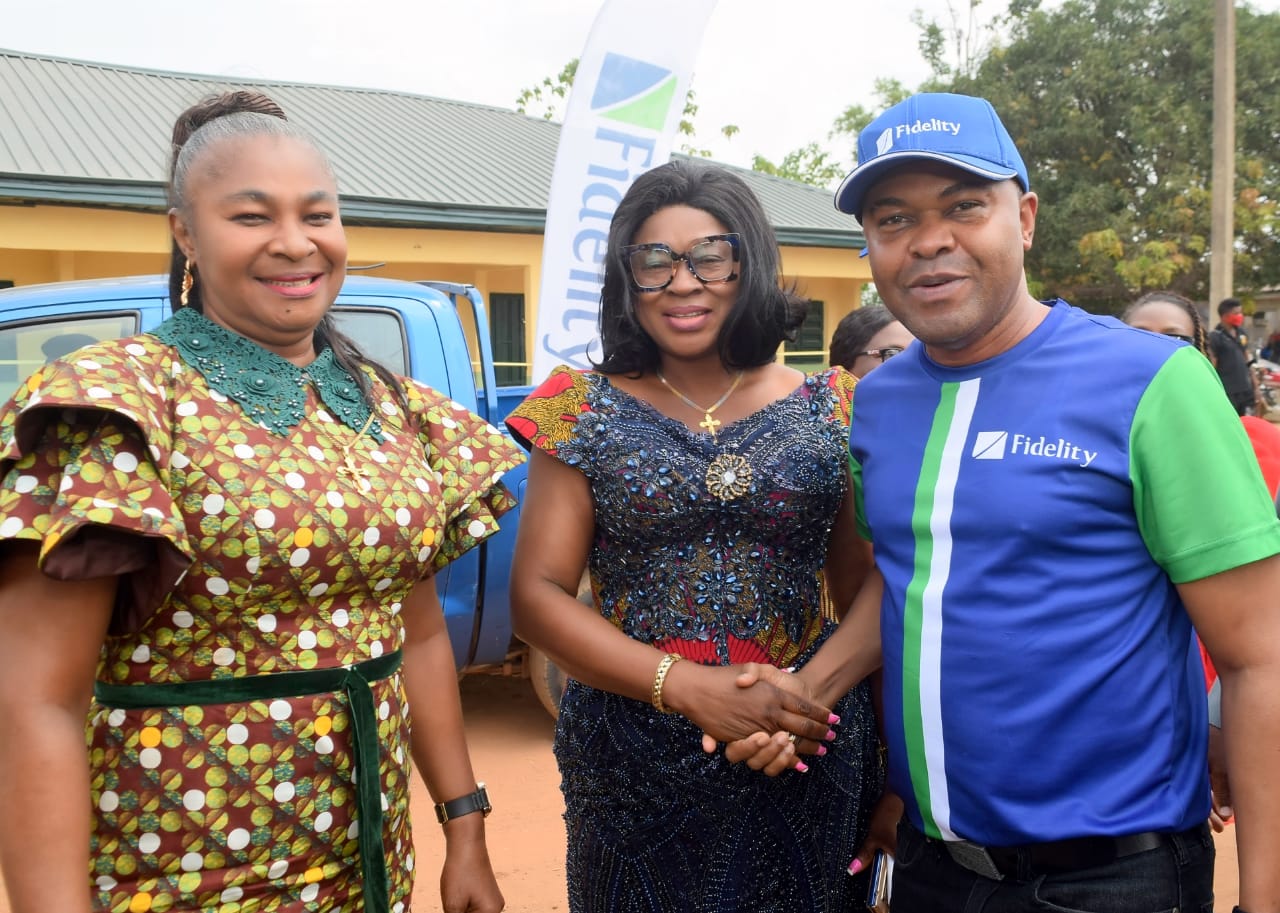Education
Oyoko Primary School: An Avoidable Saga

By Jerome-Mario Chijioke Utomi
As a background to this piece, it is important to underline that this author would be the very last person to insinuate that Governor Ifeanyi Okowa, the Governor of Delta State, has not done good things as that would be a lie from the pit of hell.
Aside from demonstrating this fact in my previous opinion articles, commentaries and interventions which favoured or supported policies, actions, inactions and decisions of the Delta State government, I have recently argued that he (the Governor) is eminently qualified to be the nation’s Vice President and would stupendously perform if a such feat is achieved.
However, like every media professional, this piece will continue to support the fundamental needs of the state and the positive purpose of the elected government if such policies by the state actors will not in any way dent or obstruct the people from becoming keen to acquire skills and disciplines of developed nations, it will not support a policy/action based on sentiment or allow sentiment to determine its judgments.
A typical example of such an exception is the pictures of the sorry state of Oyoko Primary School, Abavo, Ika South Local Government Area of the state currently in circulation.
The disturbing pictures showed visibly distressed structures, and dilapidated classrooms laced with fallen ceilings, windows and doors. Going by the pictures and accompanying commentaries, it cannot be characterized as an overstatement to describe such a ‘scene’ as deplorable, dehumanizing, troubling, in bad light bracingly in contravention of international best standards and most importantly, a reality that all well-meaning Deltans including our dear Governor should worry about.
Paradoxically, within this period, I have had the unfortunate opportunity to read many commentaries underlining that this is not the time to hold our state government accountable for such an ugly scenario as the responsibility of the primary schools and primary education in the state falls within the preview of the local government authority. To others, the only remedy for this problem is simply to encourage parents to accept fate as across the world, education is neither easy nor cheap to fund.
Without a doubt, Okowa has done appreciably well for the sector. Take, as an illustration, Delta State under Governor Okowa’s first term in office witnessed the renovation/reconstruction/construction of over 5,000 classrooms. He also incubated, nurtured and brought into existence three healthy universities to cater for the academic yearnings of the people of the state.
Evidence also abounds that as a result of the work of the Technical and Vocational Education Board in conjunction with the supervising Ministry of Basic and Secondary Education in the state, six technical colleges in Agbor, Sapele, Ofagbe, Utagba-Ogbe, Ogor and Issele-Uku have been fully rehabilitated, well equipped and fully functional.
Consequently, Delta is the first state in the country to have all of the courses offered by its technical colleges accredited by the National Board for Technical Education (NBTE).
These efforts notwithstanding, the truth is that the state leadership is bound to face confusion in their minds and may not be able to finish strong as presently envisaged if they allow this present reality at Oyoko and other schools to flourish unaddressed.
For me, I think the Oyoko primary school saga was avoidable if only the government’s attention was drawn to it by those who should know.
Another urgent reason why the state government needs to intervene, reassess this process and address the present injustice is the hidden awareness that the Oyoko experience may be one out of many other numerous sad commentaries in the state. While the Oyoko case exists in the open, many others may in a covert/subtle manner be in that condition. If the Oyoko experience is a challenge, others may be a challenge.
More touchingly, that such a ‘learning environment’ still exists in the state could be considered a sure sign that the state did not learn any lesson from the ghastly experience recorded a few years ago at Okotie Eboh Primary school, Sapele area of the state or may have allowed such experience go with political winds.
Surely, it is our collective responsibility to ensure that our schools work and our children are properly educated at the right time. But in this particular case, if the state fails to do the needful, it will again dispatch another sign of a people unmindful of the fact that our children enjoy the right to education as recognized by a number of international conventions, including the International Covenant on Economic, Social and Cultural Rights which recognizes a compulsory primary education for all, an obligation to develop secondary education accessible to all, as well as the progressive introduction of free higher education/obligation to develop equitable access to higher education.
Most importantly, not taking action to address the situation will simply mean our youths/nation by extension is faced with a bleak future.
Utomi Jerome-Mario is the Programme Coordinator (Media and Public Policy), Social and Economic Justice Advocacy (SEJA), a Lagos-based Non-Governmental Organization (NGO). He can be reached via [email protected]/08032725374
Education
Fidelity Bank Renovates Anambra Community Secondary School

By Aduragbemi Omiyale
An administrative building at the Community Secondary School, Enugwuabo Ufuma, in Orumba North Local Government Area of Anambra State has been renovated by Fidelity Bank Plc.
The project underscores the bank’s long-standing commitment to investing in education as a catalyst for sustainable development, according to the Regional Bank Head for Fidelity Bank, Mr Nosa Orumwense, at a ceremony to officially hand over the building to the school’s leadership.
It was gathered that the leading financial institution comprehensively renovated the one-storey administrative block to address infrastructural challenges faced by the school.
“For us at Fidelity Bank, this project represents more than a building. It represents opportunity, progress, and a shared commitment to building a better future for our youths here in Enugwuabo Ufuma and beyond.
“By improving the educational infrastructure of this community, we are providing students and teachers with an environment that promotes learning, discipline, and pride,” Mr Orumwense stated.
On her part, the Commissioner for Education, Professor Ngozi Chuma-Udeh, who represented the Governor of Anambra State, Professor Chukwuma Soludo, described the project as a true demonstration of corporate social responsibility.
“Corporate social responsibility is what gives an organisation its human nature. What Fidelity Bank has done reflects compassion and a genuine commitment to touching lives,” she said.
“This school was earlier placed on an emergency list due to the deplorable condition of its buildings. During my last visit, I was genuinely concerned about the safety of both students and teachers. Today, the school wears a new look, thanks to Fidelity Bank’s support,” she added.
The Commissioner also expressed the state government’s appreciation to Fidelity Bank, saying, “We thank Fidelity Bank for this intervention, which clearly demonstrates the true meaning of corporate social responsibility – making tangible impacts that improve lives and strengthen communities.”
Education
Saint Riman of Adedokun International Schools Ota Wins InterswitchSPAK 7.0

By Modupe Gbadeyanka
A student of Adedokun International Schools, Ota, Ogun State, Saint Riman, has emerged as the overall winner of the InterswitchSPAK National Science Competition.
The 16-year-old student was crowned Nigeria’s Best STEM Student, receiving a N15 million scholarship in the InterswitchSPAK 7.0 grand finale.
InterswitchSPAK is the flagship Corporate Social Responsibility initiative of Interswitch, one of Africa’s leading integrated payments and digital commerce companies.
The programme is Nigeria’s largest STEM competition for senior secondary school students. It concluded on a high note after months of nationwide assessments, problem-solving challenges, and competitive stages involving over 18,000 registered participants.
Business Post reports that David Okorie of Caleb International College, Magodo, Lagos State, was the first runner-up, getting N10 million in scholarship, while David Solomonezemma of Deeper Life High School, Enugu State, was the second runner-up, bagging a N5 million scholarship. All winners also received brand-new laptops in addition to other exciting prizes.
While presenting the awards, the Group Marketing and Communications for Interswitch, Ms Cherry Eromosele, commended the students for their discipline, resilience, and exceptional intellectual performance.
“InterswitchSPAK was created to inspire and reward excellence in STEM education while equipping young Africans with the skills to tackle real-world challenges.
“These winners have demonstrated remarkable promise, and by supporting their education, we are reaffirming our belief in the power of young people to shape Africa’s future through innovation and science,” Ms Eromosele said.
Beyond the top three winners, other finalists received brand new laptops and exciting cash rewards for outstanding performance, alongside their teachers who were also celebrated and rewarded for their critical role in nurturing talent. This holistic approach reinforces Interswitch’s commitment to sustainable educational development through collaboration between students, educators, and institutions.
Now in its seventh year, InterswitchSPAK has become a highly respected platform, serving as a pipeline for discovering, developing, and empowering the next generation of scientists, engineers, technologists, and innovators. Through this initiative, Interswitch continues to highlight how strategic private sector investment in education can drive innovation, reward merit, and contribute meaningfully to national development.
The successful conclusion of InterswitchSPAK 7.0 underscores Interswitch’s leadership in advancing STEM education as a catalyst for socio-economic growth, preparing Nigerian students to compete confidently on the global stage while shaping Africa’s innovation-driven future.
Education
Zurich-based Sparkli Raises $5m for Generative Learning Platform

By Dipo Olowookere
A Zurich-based anti-chatbot edtech firm, Sparkli, has secured about $5 million pre-seed round for its generative learning engine designed to turn screen time into active learning expeditions that foster agency, curiosity, and future-ready skills.
The pre-seed round will allow Sparkli to scale its generative learning engine and prepare for a private beta launch in January 2026. The company is currently validating its platform through a strategic pilot with one of the world’s largest private school groups.
This partnership provides Sparkli with a powerful testing ground across a network of more than 100 schools and over 100,000 students.
Sparkli transforms the curiosities of children into multi-disciplinary, real-life journeys that foster future-ready skills, including technology, design thinking, sustainability, financial literacy, entrepreneurship, emotional intelligence, and global awareness.
The company is already positioning itself to disrupt the $7 trillion global education market, a sector widely predicted to be one of the most significant use cases for artificial intelligence.
Its approach is shaped by three shifts essential for modern childhood education, a strategy designed to solve the ‘Agency and Curiosity Gap’. First, it forces a Velocity Shift by moving away from static curriculums to real-time relevance where children explore new topics the moment they emerge.
Second, it drives an Engagement Shift by replacing the dry ‘AI chatbot wall of text’ and passive screen time (watching videos, playing video games) with a multimodal playground of visuals, voice, and playable simulations. This turns consumption into active, gamified inquiry rooted in educational value.
Finally, Sparkli prioritizes a Skills Shift that focuses on capabilities such as creativity and complex problem solving rather than memorization.
“Our goal is to build agency in the next generation. Children learn by exploring, making choices, asking questions, and discovering what inspires them. Sparkli turns screen time into a place where curiosity grows rather than fades,” the chief executive of Sparkli, Mr Lax Poojary, said.
One of the funders, Lukas Weder of Founderful, said, “Sparkli represents a step change in how children can interact with knowledge.
“The team is applying high caliber engineering and thoughtful pedagogy to a space that desperately needs innovation. Their traction with schools shows a real appetite for tools that foster curiosity and agency rather than passive consumption.”
-

 Feature/OPED6 years ago
Feature/OPED6 years agoDavos was Different this year
-
Travel/Tourism9 years ago
Lagos Seals Western Lodge Hotel In Ikorodu
-

 Showbiz3 years ago
Showbiz3 years agoEstranged Lover Releases Videos of Empress Njamah Bathing
-

 Banking8 years ago
Banking8 years agoSort Codes of GTBank Branches in Nigeria
-

 Economy3 years ago
Economy3 years agoSubsidy Removal: CNG at N130 Per Litre Cheaper Than Petrol—IPMAN
-

 Banking3 years ago
Banking3 years agoSort Codes of UBA Branches in Nigeria
-

 Banking3 years ago
Banking3 years agoFirst Bank Announces Planned Downtime
-

 Sports3 years ago
Sports3 years agoHighest Paid Nigerian Footballer – How Much Do Nigerian Footballers Earn












